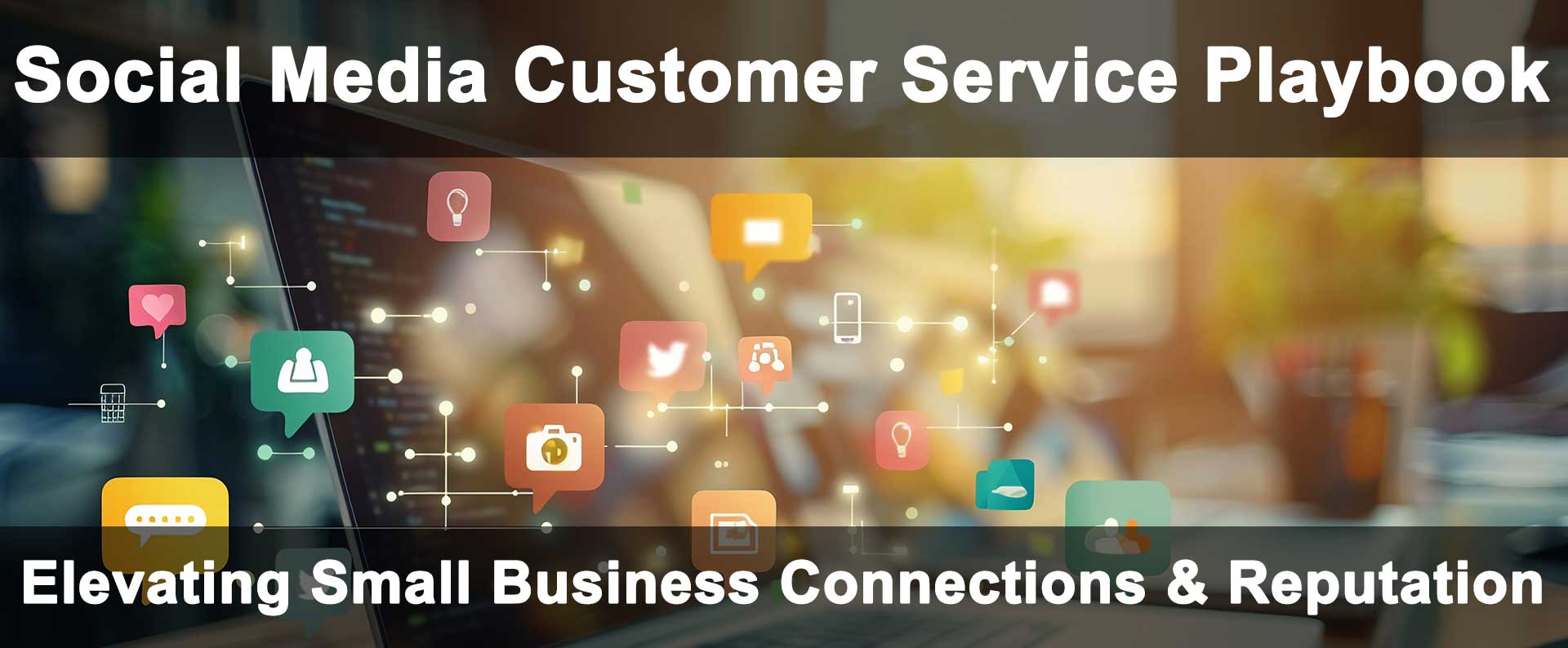In today's world, social media is an indispensable channel for customer service, especially for small businesses. With billions of users actively engaging on platforms like Facebook, X (Twitter), Instagram, and LinkedIn, businesses can directly connect with customers, address inquiries, and manage their online reputation.
This playbook is a guide exploring how small businesses can effectively and efficiently leverage social media for customer service to strengthen relationships and build a positive reputation.
1. The Power of Social Media in Customer Service
Social media empowers small businesses to connect with customers in real-time. This immediacy helps build trust, foster loyalty, and cultivate a vibrant community around the brand.
Moreover, a robust social media presence can act as a buffer against negative publicity, providing a platform to openly address and resolve customer issues.
2. Best Practices for Responsive Customer Inquiries
- Prompt Replies: Customers expect swift responses on social media. Aim to reply within an hour to demonstrate attentiveness and commitment to customer service.
- Personalized Approach: Use the customer's name and tailor responses to create a personal connection. Acknowledging specific concerns shows you value their input.
- Clear Communication: Provide straightforward and concise answers. Avoid jargon and ensure your message is easily understood.
- Visual Engagement: Incorporate images, videos, or infographics when appropriate. Visual content can enhance understanding and engagement.
- Defined Availability: Clearly communicate your customer service hours and set expectations for response times outside of these hours.
3. Navigating Complaints on Social Media
- Acknowledge & Empathize: When a complaint arises, recognize the issue and express empathy. This demonstrates that you take the customer's concerns seriously.
- Move Conversations Offline: For complex complaints, invite the customer to discuss the matter privately through direct messages or phone calls. This protects sensitive information and shows a commitment to resolution.
- Professional & Courteous Tone: Maintain a calm and professional demeanor, even in the face of negative feedback. Avoid defensiveness and focus on finding a solution.
- Follow Up: After addressing a complaint, follow up with the customer to ensure their satisfaction. This can transform a negative experience into a positive one, strengthening loyalty.
- Learn & Adapt: Treat complaints as growth opportunities. Identify recurring issues and make adjustments to your products, services, or practices accordingly.
4. Harnessing the Power of Social Listening
Social listening involves monitoring social media channels for mentions of your brand, competitors, and industry trends. Small businesses can leverage social listening to:
- Identify Trends: Use social listening tools to uncover customer sentiment and emerging trends. This data can inform marketing strategies and product development.
- Track Brand Mentions: Keep a pulse on what customers are saying about your brand. Engage with both positive and negative mentions to demonstrate your involvement and appreciation for feedback.
- Proactive Customer Engagement: Leverage social listening insights to engage with customers proactively. Share relevant content, respond to inquiries, and address concerns before they escalate.
- Gain Competitor Insights: Monitor competitors to understand their strengths and weaknesses. This knowledge can help you differentiate your services and enhance customer satisfaction.
- Prepare for Crises: In the event of a PR crisis, social listening tools can provide valuable insights into public sentiment and inform a timely response strategy.
5. Building a Positive Online Reputation
- Showcase Positive Experiences: Highlight customer testimonials and success stories on your social media platforms. This reflects your commitment to customer satisfaction.
- Engage with the Community: Participate in relevant conversations and connect with local events or initiatives. This helps build relationships and positions your business as a community leader.
- Maintain Consistent Branding: Ensure a consistent voice and branding across all social media channels. This fosters recognition and trust among your audience.
- Educate Your Audience: Use social media to share valuable content, tips, and insights related to your industry. This establishes your business as an authority and builds credibility.
- Encourage User-Generated Content: Invite customers to share their experiences with your products or services. This not only boosts engagement but also serves as authentic testimonials.
The Lesson
Leveraging social media as a customer service channel can significantly enhance relationships and protect the reputation of small businesses. By adopting effective strategies for responding to inquiries and complaints, utilizing social listening tools, and actively engaging with customers, small businesses can cultivate a loyal customer base and establish a positive online presence.
In an era where reputation is paramount, proactive and thoughtful social media customer service strategies are essential for achieving sustainable success.













